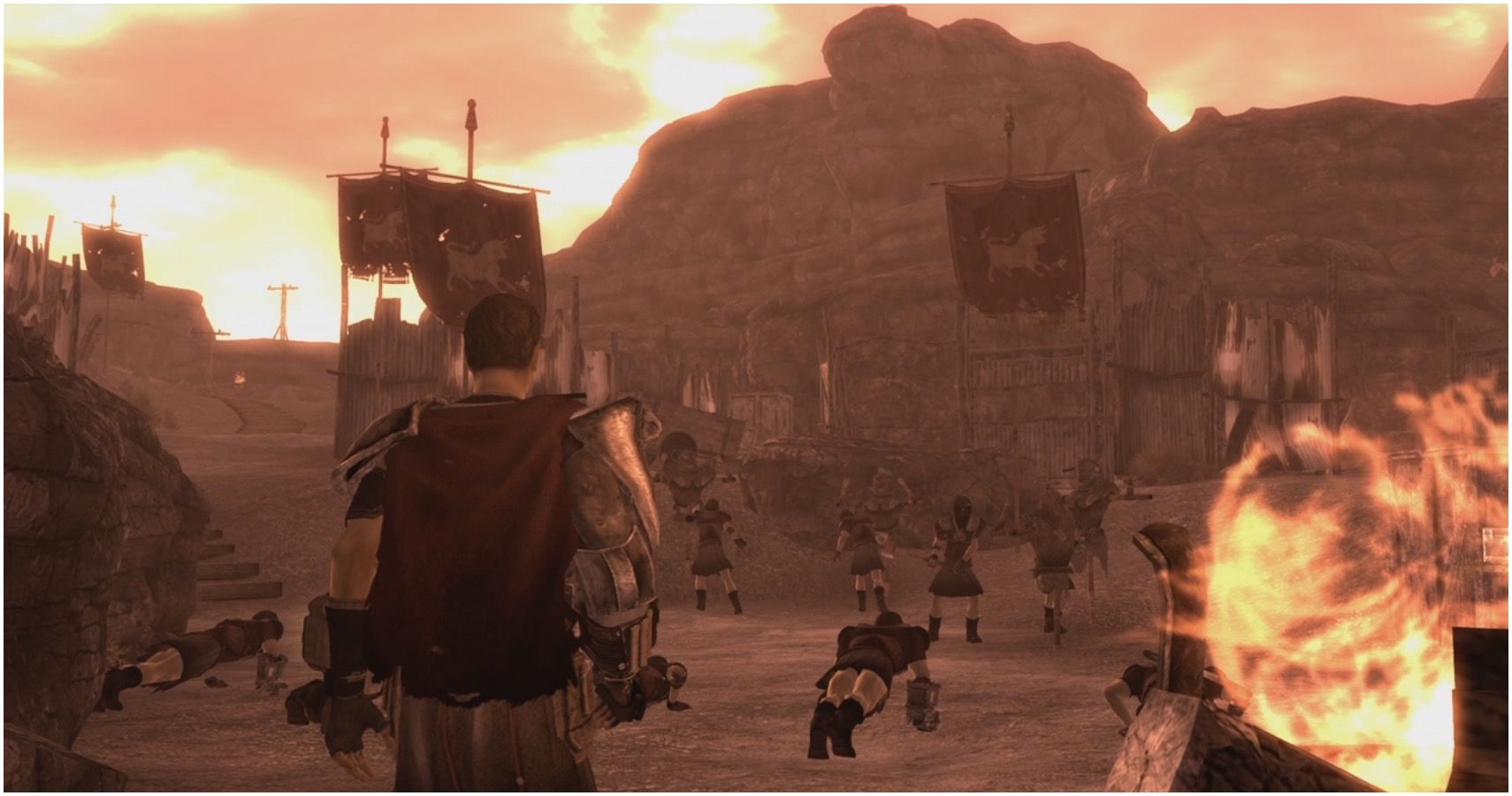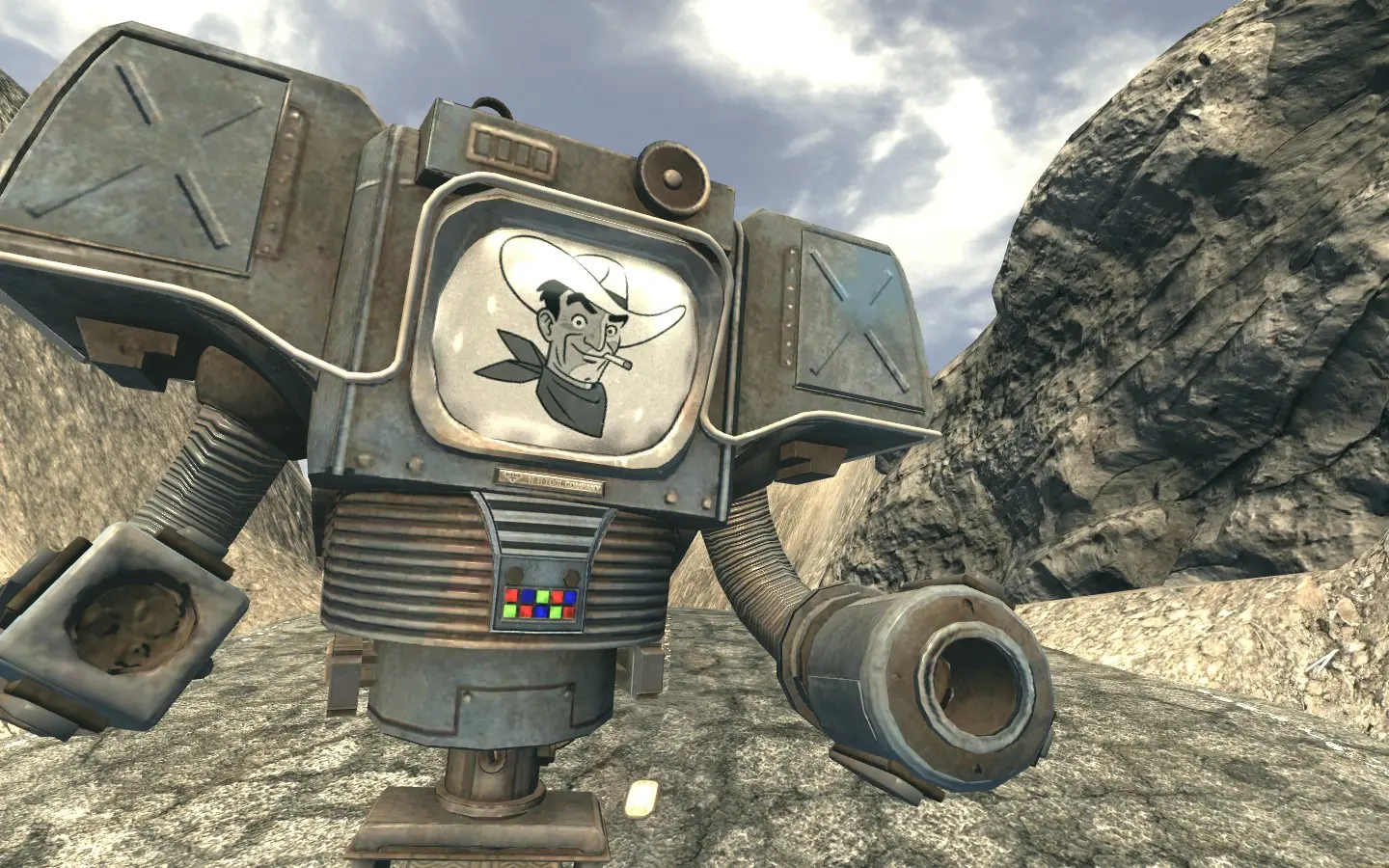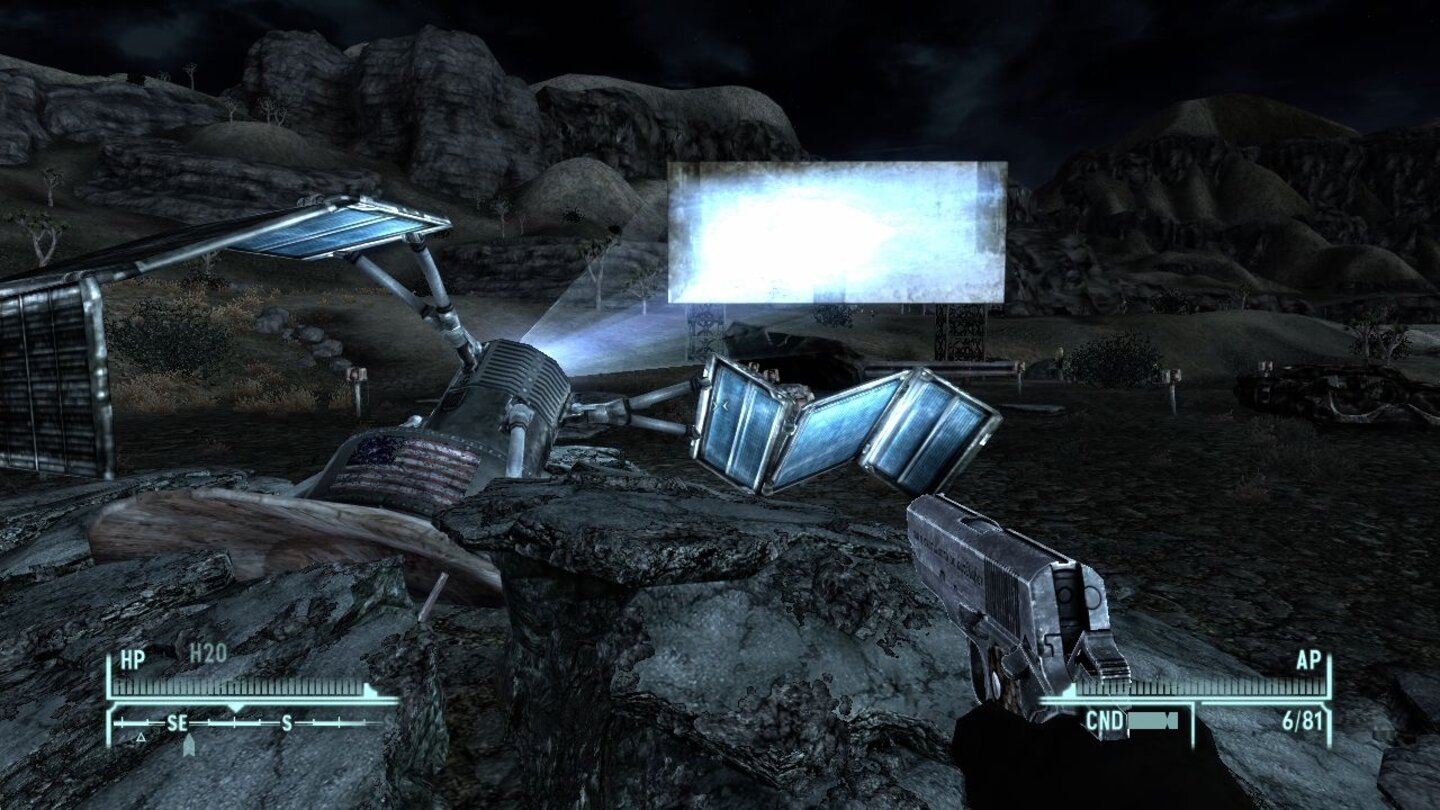
Fallout New Vegas Revisited: One-of-a-kind adventure
- Post By Jan
- May 7, 2023
In Mojave Wasteland, freedom’s vastness becomes your greatest guide and enemy at once. After thirteen years, Fallout New Vegas still stands as an unmatched experience, where the player thrives for more and more with each playthrough.
Words by Jan Tracz
“War, war never changes,” states Ron Perlman with his deep and stentorian voice at the beginning of every Fallout franchise game. As the current world situation proved, his words – spoken, for the first time, by Ulysses S. Grant in the 19th Century – haven’t aged at all. And another thing that never changes is Fallout New Vegas’ enduring greatness; after nearly thirteen years of its premiere, it still evokes the same emotions.
It takes place in an alternate universe where the Sino-American war destroyed the entire Earth through nuclear destruction. Then the radiation took our planet, some strange mutations happened and the whole place became one enormous hell. And how did people survive? In the US, Vault-Tec Corporation built various vaults all over the entire country. This is why, in each game, we play as one of the various vaults’ residents – for instance, New Vegas is set around 204 years after the great war and reveals how the world has changed.

You become The Courier on Mojave Wasteland and someone gives you a simple mission – deliver a mysterious Platinum Chip. No questions asked and the payment would be profitable: sounds like a job for you! However, your employer’s associate, Benny (voice acted by Matthew Perry), unscrupulously betrays you. Although he shoots you in the head (that’s how the game starts), you’re saved, somehow miraculously, by Doctor Henry. You then exit his house, wisely plan revenge and the rest is history…
The whole region, which once was our Mojave Desert, is full of twisted events and deviant people who do nasty things and enunciate some eerie caveats. It is clear that the so-called moral compass no longer exists in Mojave Wasteland. That being said, it is your entire choice if you want to be good or bad, if you want to kill or spare, if you want to steal or give, or if you want to build or destroy. Become death, a destroyer of the worlds who pulls all strings, be the wasteland’s saviour and make this place prosperous or act as a solitary vagabond who just minds his own business. Every walkthrough will be different – the amount of choices is remarkably impressive. In New Vegas, you can either become a king or an obedient servant.
Every society, even the one most depraved, does need its politicians and Fallout New Vegas proposes a surplus of unforgettable factions (and its chairmen). Two main institutions are Caesar’s Legion (totalitarian dictatorship ruled by a mad and racist Caesar) and NCR (New California Republic), a federal republic that seems like an appropriate option only at first sight. There are ongoing themes related to colonialism, fascism and autocracy and choosing our side becomes even more challenging when we learn how nefarious are both institutions.

(Un)fortunately, the game gives us a chance to meet other personalities, like Mr. House, self-styled president and the CEO of enigmatic RobCo Industries, whose presence in a hibernation chamber is, probably, solely inspired by one of the main themes from Philip. K. Dick’s novel Ubik (he appears as a projected image and consciousness while his body is in a nearly-dead condition). But saying that other options would be ethically righteous sounds like a huge overstatement. Your freedom becomes your major enemy – by deciding for yourself, you have to face some disastrous consequences. It turns out that the game enslaves you with its most attractive offerings.
Fallout New Vegas possesses a tempting aura of paddling your own canoe, as you can do whatever you want, with no time and order limits. But there is a sense of nihilism that absorbs each of your playthroughs, no matter how long you will consider all your options and ponder on future stratagems. In Mojave, nothing can be perceived in black and white, thus the social construct of dividing everything into “good” and “evil” categories seems impractical in a world which has forgotten about the old world’s creations. Even if you try to be impeccably virtuous, Obsidian’s masterpiece will always be one step ahead and make your run miserable. After quite some time, it obliterates your initial expectations and even manages to make you rethink your previous beliefs.
The fourth instalment in the franchise – subliminally, through various nuances like spotted locations, founded books and notes or thrilling side missions – pushes you to explore the lore. Even most of the populist dialogues with the future friends, foes and powerful players of Mojave Wasteland will only give you one side of the whole story presented in the game. There are secrets you want to find out instantaneously (Is Caesar’s Legion, actually, that bad? Who was Mr. House?), or the ones you wish you didn’t know about (the shiver-evoking mystery of the Vault 11 and its last surviving member, a quite baffling story of the Vault 19, or what happened to the Casino’s Vera Keyes). Your curiosity becomes too compelling and functions as a driving force that makes this game unputdownable.

The more you’re familiar with the culture, the more details you spot and honestly appreciate. This rule finds its application in the game’s four unforgettable, standalone expansions (they do not affect the plot’s main thread, but they extend the lore’s mythology). New Vegas’ first add-on, the disheartening Dead Money, offers a story about greed, desire and jaundice, which derives its form from Shakespearean (affections and betrayals) and Biblical tropes (prophecy and the motive of the cataclysm). It proposes another fatalistic allegory, which only strengthens the downbeat undertone.

Contrarily, Old World Blues seems like an incongruous addition, which draws from the aesthetic of sci-fi novels written by Stanisław Lem (peculiar guns, droids with human brains, the artistic vision’s overall) and aforementioned Dick (talking household tools, technological grotesque). And one cannot forget about ingenious Honest Hearts (its main anti-hero, Joshua Graham, appears as Wasteland’s Machiavellian figure) and Lonesome Road, an add-on that allows you to re-examine the protagonist’s decisions and past actions (it has the same functionality for the narrative’s premise as The Last of Us 2 has for Ellie’s narrative arc). Today, it’s practically unfeasible to separate the main game’s content from its pieces of DLC. We treat it as a coherent, post-nuclear tale with no particular exceptions.
After finishing Fallout New Vegas for the first time, you just know it’s an interminable adventure, one that will always re-evaluate the player’s take on its characters and Mojave Wasteland’s quiet and disturbing horror. The game’s fluidity is its hallmark and the most efficient feature – so are you ready to become The Courier again?


